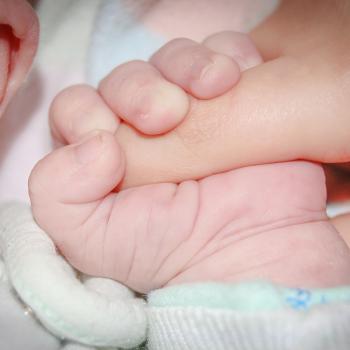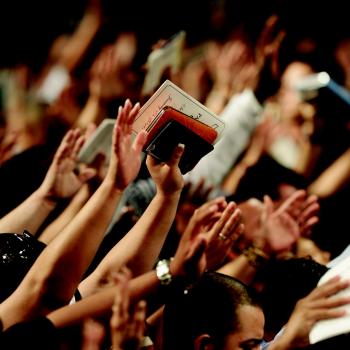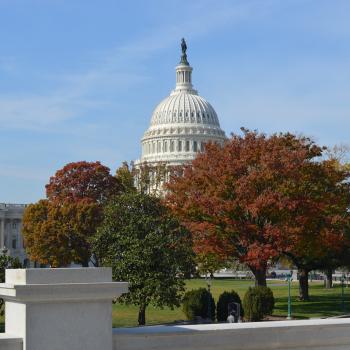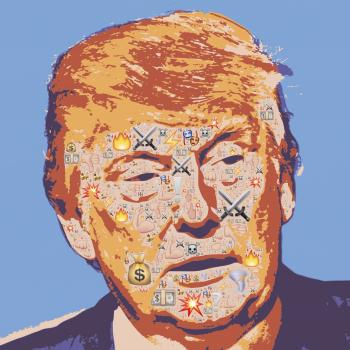I can see so many ways that this will end in a self-own.
Last month, the police were called on two black men in a Philadelphia Starbucks, after they plopped down in a booth without purchasing anything. This was after one was denied access to a bathroom.
That’s not an unusual practice. Many business reserve their bathrooms for paying customers.
I realize how inconvenient it may have been for either of these gentlemen to buy a $5 cup of coffee, just to use the bathroom, but rules are rules.
Personally, I don’t see a problem with allowing someone from the public to dash in, use the restroom, then leave. The problem is when they decide to take up residence in space that would normally be reserved for paying customers, and that’s what seems to have been the case with the two gentlemen in Philadelphia.
To be clear, what happened in Philadelphia was an overreaction, but it was an overreaction on almost everyone’s part.
The two men, Rashon Nelson and Donte Robinson, were apparently there to meet someone. It would appear that they, nor the man they were meeting were familiar with the Starbucks policy, regarding customers-only bathrooms.
And to address those who roll their eyes, then rush to pick up their picket signs: That’s customers only, not whites only.
Nelson and Robinson could have gotten up and waited outside, after being informed about the policy. Their refusal to do so, whether out of pride, principle, or arrogance, does not make them the victims in this. They created drama where it wasn’t necessary.
The store employee who called 911 was just being silly. This wasn’t an emergency. It was an annoyance.
The police officers on the scene apparently tried very hard to resolve the situation without an arrest. Nelson and Robinson, however, felt entitled to take up space in that particular location, and refused to leave.
And of course, somebody had to protest. Starbucks, as a corporation, crumbled without a fight. They paid the trespassers (because that’s what Nelson and Robinson were doing, at the point when law enforcement intervened) an undisclosed settlement, offered them a free education, paid the city of Philadelphia what was a symbolic $1 for each of the men, and promised to set up a $200,000 program to benefit young entrepreneurs.
They also announced that on May 29, Starbucks locations across the country would be closing down to undergo anti-bias training.
If this strikes you as one of the stupidest things you’ve ever heard, it’s because you’re normal.
It’s all about “implicit bias.”
The Perception Institute, a consortium of researchers consulting with Starbucks, defines implicit bias as attitudes – positive or negative – or stereotypes someone has toward a person or group without being conscious of it. A common example, according to some of its studies, is a tendency for white people to unknowingly associate black people with criminal behavior.
What about a tendency for black people to unknowingly associate white people with bias? Is that a thing?
I’m being flippant, but it’s because we’ve become an annoyingly, overly sensitive society. We’re teaching our youth to grab on to any issue they disagree with and beat each other over the heads with terms like “bias” and “racism.”
There’s absolutely no evidence that it was bias or racism that caused that employee to call the police on the men who were arrogantly refusing to honor what was Starbucks store policy.
Shutting down 8,000 stores across the nation today is knee-jerk, at best, but it doesn’t stop there.
Anti-bias sessions can incorporate personal reflections, explorations of feelings and mental exercises. But one expert says training of this kind can have the opposite effect if people feel judged.
Yes. It can. How long can you continue to tell someone that by a chance of birth, if they’re born with a lack of melanin, they’re automatically evil and need to be “trained” before they revolt?
According to a video previewing the Starbucks training, there will be recorded remarks from Starbucks executives and rapper/activist Common. From there, employees will “move into a real and honest exploration of bias” where, in small groups, they can share how the issue comes up in their daily work life.
Starbucks has described it as a “collaborative and engaging experience for store partners to learn together.” “
Well, they’ve got Common on board, so…
You’re not going to get me to say there isn’t bias or prejudice in the world. I know better. Minorities in this nation have historically been treated poorly.
That being said, not every situation where people of color are told “no” is a case of bias. The nation has made great strides in changing the way people think and react on racial issues. We’re not where we were. We may not ever completely rid ourselves of bias, because of human nature, but part of that is not losing our minds over minor incidents, like the Starbucks case.
There are, of course, the people whose livelihood relies on keeping minorities feeling like victims, in need of “advocates.”
Developed with feedback from the NAACP Legal Defense and Education Fund, the Perception Institute and other social advocacy groups, the four-hour session will give workers a primer on the history of civil rights from the 1960s to present day. Workers will also view a short documentary film.
Alexis McGill Johnson, Perception’s co-founder and executive director, says anti-bias training is about awareness.
“The work that we want to do is not say you’re a bad person because you have a stereotype about a group, but say this is why your brain may have these stereotypes,” she said.
Starbucks have changed their bathroom policy, declaring that in all their locations it will now by open to the public, no questions asked.
That’s going to make for an interesting experiment. They’ll now get to see just how nasty some people can be, when there are no checks on them.
They’re also telling employees not to approach anyone taking up space, unless they seem disruptive.
Calvin Lai, an assistant professor of psychological and brain sciences at Washington University in St. Louis, said people should not place high expectations on this one day.
“We find that oftentimes diversity training has mixed effects, and in some cases it can even backfire and lead people who are kind of already reactive to these issues to become even more polarized,” Lai said.
One afternoon wouldn’t really be “moving the needle on the biases,” especially when it’s a company with as many employees as Starbucks, he said. “A lot of those employees won’t be here next year or two years or three years down the line.”
Good point. Is being a Starbucks barista the kind of thing people get into as a long term career goal, or is it college kids working their way through school?
Starbucks will now wrestle with training every incoming employee and cutting into their profits to pay off the misery merchants who benefit by telling businesses how racist and insensitive they are.
They’ve also painted a big, fat bullseye on their backs. They’ll be targeted for protests every couple of months because now the perpetually outraged out there know it doesn’t take much to make management flinch.
Watching how this unfolds with investors, stock prices, and on-the-ground, in-store quality over the next few months is going to become a study, in itself, for future business classes.










